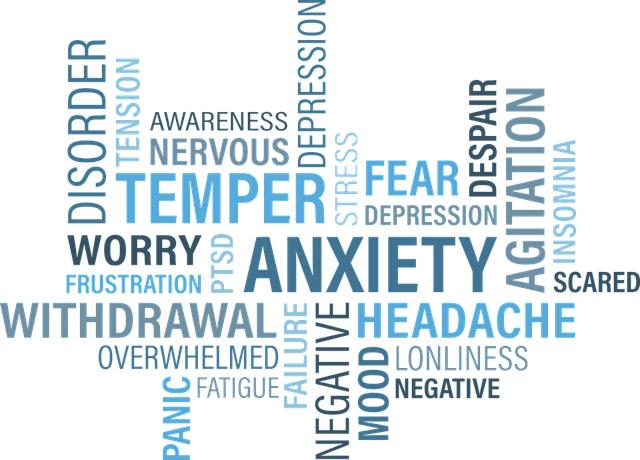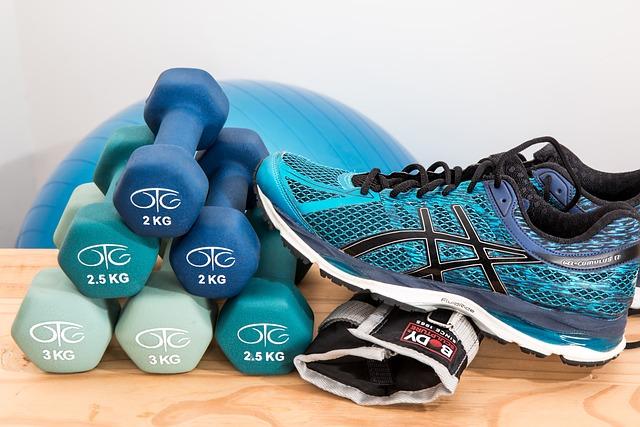How to Pronounce Hypertrophy: A Quick Guide

Do you ever find yourself stumbling over medical terms, struggling to pronounce the seemingly unpronounceable? Look no further than this quick guide on how to pronounce hypertrophy, a commonly used term in the world of healthcare and fitness. Whether you’re a healthcare professional, a fitness enthusiast, or simply a curious individual, we’ve got you covered. With our natural and knowledgeable approach, we’ll break down the pronunciation of hypertrophy, allowing you to confidently navigate conversations and discussions surrounding this topic. Let’s dive in and conquer this tongue-twister together!
Contents
- 1. Understanding the Phonetic Elements of Hypertrophy Pronunciation
- 2. Mastering the Accented Syllables: Tips for Pronouncing Hypertrophy
- 4. Overcoming Common Mispronunciations of Hypertrophy
- 6. The Right Emphasis Matters: Accentuating Syllables in Hypertrophy Pronunciation
- 7. Practicing Hypertrophy Pronunciation: Exercises to Improve Articulation
- Exercises to Improve Articulation
- 8. Nailing the Vowels and Consonants: Fine-tuning Hypertrophy Pronunciation
- 9. Vocal Techniques for Pronouncing Hypertrophy Clearly and Naturally
1. Understanding the Phonetic Elements of Hypertrophy Pronunciation
can be a valuable tool for anyone looking to master the correct enunciation of this medical term. Hypertrophy is a condition characterized by an increase in the size or function of an organ or tissue in the body. To pronounce it correctly, you need to break down the word into its phonetic components. Here is a quick guide to help you perfect your pronunciation:
-
Break it down: The word "hypertrophy" can be broken down into four syllables – hy-per-tro-phy. Paying attention to each syllable will help you pronounce it more accurately.
-
Stress on the right syllables: In hypertrophy, the stress falls on the second syllable, "per." This means you should emphasize that syllable when pronouncing the word.
- Consonant sounds: Take note of the consonant sounds in the word. The "h" is a voiceless sound, so ensure that you don’t add any vocal resonance while pronouncing it. The "ph" in "trophy" is pronounced as an "f" sound, which is crucial for accurate pronunciation.
Remember, practice makes perfect when it comes to pronunciation. Take your time to break down the word, stress the right syllables, and focus on the correct consonant sounds. With a little effort, you’ll be able to confidently pronounce "hypertrophy" without hesitation.
2. Mastering the Accented Syllables: Tips for Pronouncing Hypertrophy
In order to accurately pronounce the word "hypertrophy," it is essential to master the accented syllables. Proper pronunciation can improve your communication skills and help you articulate the word confidently. Here are some tips to help you pronounce hypertrophy flawlessly:
-
Break it down: Divide the word into its syllables. In the case of hypertrophy, the word is pronounced as hy-per-tro-phy. This breakdown will help you in focusing on each syllable individually.
-
Stress on the right syllable: Place emphasis on the second syllable, "tro." This syllable is accented, and its pronunciation is crucial for correctly saying hypertrophy. Make sure to give it a slightly stronger emphasis than the other syllables.
- Familiarize yourself with similar sounds: Becoming acquainted with words that sound similar to hypertrophy can assist you in understanding the correct pronunciation. Words like "trophy" and "triumph" share a similar sound to the "tro" in hypertrophy.
Remember, practice makes perfect! Take the time to practice saying hypertrophy out loud and pay attention to the accented syllables. With consistent practice, you will be able to pronounce hypertrophy confidently and effortlessly.
4. Overcoming Common Mispronunciations of Hypertrophy
In the world of fitness and bodybuilding, understanding the correct pronunciation of certain terms is crucial, and "hypertrophy" is no exception. This word is often mispronounced, leading to confusion and misunderstanding among gym-goers. To clear the air, this quick guide will help you master the pronunciation of hypertrophy once and for all.
-
Break it down syllabically: The word "hypertrophy" consists of three syllables – hy-per-tro-phy. Make sure to emphasize the "per" part and pronounce it as "per," rather than "par" or "pur."
-
Pay attention to the "trophe" part: Many people struggle with the second half of the word, but fear not! Simply pronounce "trophe" as "tro-fee" instead of "trow-fee" or "trof."
- Emphasize the correct syllable: The primary stress in the word hypertrophy falls on the third syllable, "tro." So, remember to accentuate the "tro" part when pronouncing it.
To summarize, the correct pronunciation of hypertrophy is "hy-PER-tro-fee," with emphasis on the "tro" syllable. With this knowledge, you can confidently discuss and explain the concept of muscle hypertrophy without any pronunciation mishaps. Keep practicing and soon you’ll be able to pronounce it flawlessly, making you sound like a true fitness expert.
6. The Right Emphasis Matters: Accentuating Syllables in Hypertrophy Pronunciation
In order to pronounce "hypertrophy" correctly, it is important to pay attention to the syllables and emphasize them correctly. This will not only help you communicate more effectively, but also show your understanding of the word. There are two main factors to consider when accentuating the syllables in "hypertrophy".
First, we have to break down the word into syllables: "hy-per-tro-phy". Each syllable needs to be pronounced clearly, with emphasis on the correct part. Let’s break it down further. The first syllable, "hy", should be pronounced with a short "i" sound. The second syllable, "per", is emphasized more, with the "er" sound being slightly extended. The third syllable, "tro", is pronounced quickly and lightly, with the focus on the second syllable. Lastly, the fourth syllable, "phy", is emphasized with a long "ee" sound.
In order to remember the correct emphasis, it can be helpful to practice saying the word out loud several times. You can also use mnemonic devices to associate each syllable with something familiar to you. For example, you can think of "hy" as the sound a hiccup makes, "per" as the sound of someone walking on a wooden floor, "tro" as a short "t" sound like in the word "stop", and "phy" as the sound a bee makes. By connecting the syllables to familiar sounds, you can easily remember and pronounce "hypertrophy" correctly.
7. Practicing Hypertrophy Pronunciation: Exercises to Improve Articulation
Exercises to Improve Articulation
Developing proper pronunciation and improving articulation skills can greatly enhance your communication abilities. Whether you are learning a new language or simply working on refining your accent, practicing hypertrophy pronunciation exercises can be beneficial. Here are some exercises that can help you improve your ability to pronounce the word “hypertrophy” correctly:
1. Tongue Twisters
Tongue twisters are a fun way to challenge your articulation skills and improve your pronunciation. Try saying phrases like “Peter Piper picked a peck of pickled peppers” or “She sells seashells by the seashore.” These exercises can help train your tongue and mouth muscles to pronounce difficult sounds correctly, including those found in the word “hypertrophy.”
2. Word Breakdown
Break the word “hypertrophy” down into manageable syllables. Practice saying each syllable separately, focusing on the correct pronunciation of each sound. For example, break it down as “hy-per-tro-phy” and repeat each syllable multiple times until you feel comfortable with the correct articulation.
3. Minimal Pair Practice
Identify words that sound similar to “hypertrophy” but differ by only one sound. For example, practice saying “hypothesis” and “hyperbolic” to highlight the difference in pronunciation. By practicing minimal pairs, you can improve your ability to hear and produce specific sounds accurately.
| Pronunciation Tips | Key Points |
|---|---|
| Position your tongue correctly | Place the tip of your tongue behind your upper front teeth when producing the “th” sound in “hypertrophy”. |
| Focus on breath support | To correctly pronounce “hypertrophy”, maintain a steady airflow and support your pronunciation with proper breath control. |
| Practice in front of a mirror | Observe your mouth and tongue movements while pronouncing “hypertrophy” to ensure you are articulating the sounds accurately. |
By consistently practicing these exercises and following the pronunciation tips, you can improve your articulation skills and confidently pronounce words like “hypertrophy” with ease. Remember, practice makes perfect!
8. Nailing the Vowels and Consonants: Fine-tuning Hypertrophy Pronunciation
Vowels and Consonants: Mastering the Pronunciation of Hypertrophy
When it comes to pronouncing the word “hypertrophy,” many individuals struggle with accurately enunciating both the vowels and consonants. However, fear not! In this quick guide, we will break down the pronunciation of hypertrophy, allowing you to confidently utter the word with precision and clarity.
Mastering Vowels:
The first step to nailing the pronunciation of hypertrophy involves perfecting the vowels. Follow these tips:
- i – Pronounce this vowel sound as you would when saying the word “bit” or “sit.”
- e – Similar to the short “e” sound in words like “bet” or “let.”
- o – This vowel sound is akin to the long “o” utilized in words such as “bone” or “tone.”
- y – Say this vowel sound as you would when pronouncing the word “sky” or “fly.”
Mastering Consonants:
The next crucial step in correctly uttering “hypertrophy” is conquering the consonants. Pay attention to the following:
- h – Pronounce this consonant sound softly, similar to when you say “hat” or “hide.”
- p – Utter this consonant sound with a pop of air, as you would when saying “pop” or “pill.”
- t – Emit this consonant sound by lightly touching your tongue to the roof of your mouth, producing a sound similar to “tan” or “tight.”
- r – Roll your tongue slightly for this consonant sound, reminiscent of pronouncing words like “rain” or “red.”
- f – Bring your lower lip gently to your upper teeth to produce this sound, as you would when saying “fun” or “fit.”
9. Vocal Techniques for Pronouncing Hypertrophy Clearly and Naturally
Articulation and pronunciation are crucial elements of effective communication. Clarity in speech allows our message to be easily understood and prevents misinterpretation. When it comes to words like “hypertrophy,” there can be some challenges due to the multiple syllables and unique sounds. Fear not, for we have compiled a quick guide on vocal techniques to help you pronounce “hypertrophy” clearly and naturally.
1. Break it down: Start by breaking the word into smaller parts. “Hyper” and “trophy” can be pronounced individually, making it easier to tackle the word as a whole.
2. Emphasize the syllables: Pay attention to the stressed syllables. In “hypertrophy,” the emphasis falls on “hy-per” and the second syllable of “tro-phy.” Pronouncing these syllables with a slightly stronger tone will add clarity to your enunciation.
3. Vowel sounds: Focus on the vowel sounds in each syllable. In “hypertrophy,” the first syllable contains a long “i” sound, similar to the word “high.” The second syllable has a short “e” sound, like the word “pet.” Being mindful of these subtle differences will help you sound confident and articulate.
4. Practicing with exercises: Practice makes perfect! Try incorporating tongue twisters or repeating phrases that include the word “hypertrophy” to improve your pronunciation. Remember, the more you practice, the more natural it will become.
Mastering the pronunciation of “hypertrophy” may take some time, but with these vocal techniques, you will be well on your way to articulating this word clearly and naturally. Keep practicing and soon enough, you’ll have no trouble speaking this word with confidence. In conclusion, mastering the pronunciation of hypertrophy is easier than you may think. With this quick guide, you now possess the knowledge to confidently navigate this tongue-twisting term. Remember, it’s all about breaking it down into manageable parts: high-peh-troh-fee. You’ve got this! Now go forth and impress your friends, colleagues, and fellow gym-goers with your newfound pronunciation prowess. Happy speaking!










